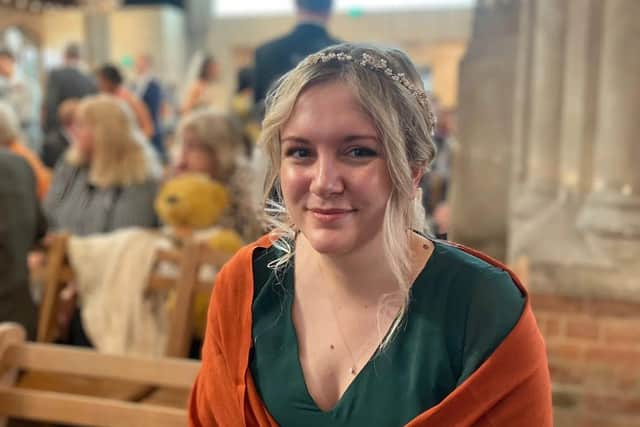Living with functional neurological disorder
and live on Freeview channel 276
But now, having made peace with the diagnosis, she’s organising the FND Hope UK charity gala with the aim of supporting others and sparing them the sense of isolation she herself felt in the immediate aftermath.
The charity gala will be on Saturday, April 13 from 7pm at Lavant Memorial Hall, Pook Lane, East Lavant, PO18 0AH – organised with FND Hope, a non-profit organisation dedicated to raising awareness and supporting individuals and families affected by functional neurological disorder. Tickets available on https://bit.ly/3IA7B3U
Advertisement
Hide AdAdvertisement
Hide AdThe condition is a brain network disorder that can encompass a diverse range of neurological symptoms including limb weakness, paralysis, seizures, walking difficulties, spasms, twitching, sensory issues and more. For many, the symptoms are severe and disabling – and life-changing for all. Tabitha said: “The gala will be a wonderful opportunity to come together, enjoy an evening of entertainment and food and drink, and most importantly, raise awareness and funds for a great cause.” There will be a speaker from the charity, talks from health-care professionals, food plus live music, DJ entertainment, raffle, photo booth and more.


Tabitha said: “FND is often described as the most common condition no one has ever heard of and I am trying to change that. I was diagnosed in 2022 at the age of 24 and it has completely changed my life. I went from being an active person to someone who could barely move on my worst days. I just started noticing some slight abnormality and sensation in my mobility and some slight limb weakness. I was training for a 5K and I was really active but I just felt abnormal. I went to the doctor and said ‘It might be nothing and I can't really pinpoint it but it doesn't feel right’ and the doctor said ‘If you are concerned then I will refer you on to the neurologist.’ But since Covid, waiting times have been higher and that was fine. I felt abnormal but I was coping. But fast forward a bit and I went on a family holiday and I just started collapsing. I managed to get around the city break but as soon as I got back to the UK I went to the doctor and said ‘This is getting worse very, very quickly.’” That was June 2022. Tabatha received the diagnosis a few months later, and in a way the diagnosis was a relief insofar as it ruled out MS or Parkinson's or brain or spinal lesions: “In a way the diagnosis is about ruling other things out. I got referred for tests and I have now been referred for treatment which will be starting later this year. There is no magic cure but they put together a treatment programme including a psychological specialist and physio and neurologist and occupational therapist. The point is that like MS it can flare up. It is basically the brain misinterpreting the environment and sending the wrong signals to the body. For me it's mobility issues especially in the foot and legs but for other people it can affect their speech.
"I'm constantly dealing with chronic pain and general limb weakness.”